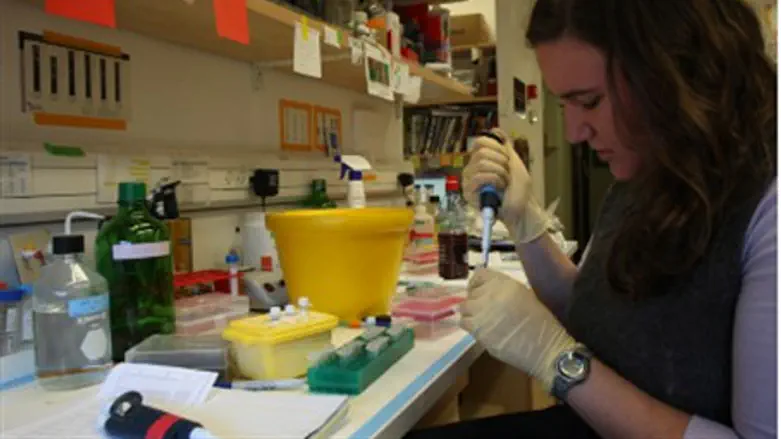
Dr. Svetlana Bunimovich, lecturer in the Department of Computer Science and Mathematics at the University of Ariel, will present research done using mathematical models, to improve the treatment of bladder cancer, at a conference to be held at Ariel University next week (August 24-29). The conference will be opened by Senior Harvard Researcher Prof. Tamar Averbuch.
Dr. Bunimovich will present research done using mathematical models to improve treatment of bladder cancer. Using differential equations as a modelling base Dr. Bunimovich discovered that the efficiency of treatment with Bacillus Calmette-Guerin (BCG) – an attenuated strain of Mycobacterium bovis (M. bovis) – can be greatly improved. The improvements mean that it will be possible not only to cut the cost of treatment but also to significantly improve the quality of life experience by patients.
Dr. Bunimovich, the daughter of a Holocaust survivor, immigrated from to Israel from Minsk and began studying applied mathematics and biology when her mother was diagnosed with bladder cancer. She quickly found that there were flaws in the treatment and management of bladder cancer. When her claims were ignored she decided to study the issue and completed a PhD in mathematical biology and medicine.
Non-invasive bladder cancer represents an ever increasing health burden worldwide. Conventional therapy entails the trans-urethral tumor removal followed by immunotherapy with BCG. This treatment has a success rate of approximately 50%, which can be improved to 70% by additional BCG dosages as maintenance therapy. Given the relatively low success rates of current therapies, the search for means to optimize the use of immunotherapeutic agents is crucial to the advancement of cancer treatment.
"Bladder cancer is the 8th most common cancer suffered by men and the 11th by women. However, as a result of the fact that fewer patients receive terminal diagnosis it is not an attractive area for research," Dr. Bunimovich said. "The quality of life during treatment however is unbearable, and the patient is often required to undergo surgery and many rounds of chemotherapy.”
As a result of her personal connection to bladder cancer, Dr. Bunimovich is motivated to make a real difference in the treatment of patients. Her own mother thankfully survived the harsh treatment of her own cancer.
The study examined the complex biological processes of tumor, immune system, and BCG interactions. Four differential equations were used to investigate the system’s response to pulsed BCG immunotherapy. This, in turn, helped indicate the optimum times and dosages required to ensure that BCG treatment is being received by the patient in a way that maximizes the efficiency and therefore effect of the treatment.
The study was also able to identify treatment regimes in which tumor destruction occurs but undesirable side effects are maintained at low levels by the immune system. This makes treatment much easier on patients and improves their quality of life.
The study has also shown that the success of BCG treatment depends on the size of the initial tumor. This will allow doctors to determine whether BCG treatment should be given at all. This is significant, as the state of a patient's tumor is an important determining factor in deciding whether to opt for intravesical therapy.